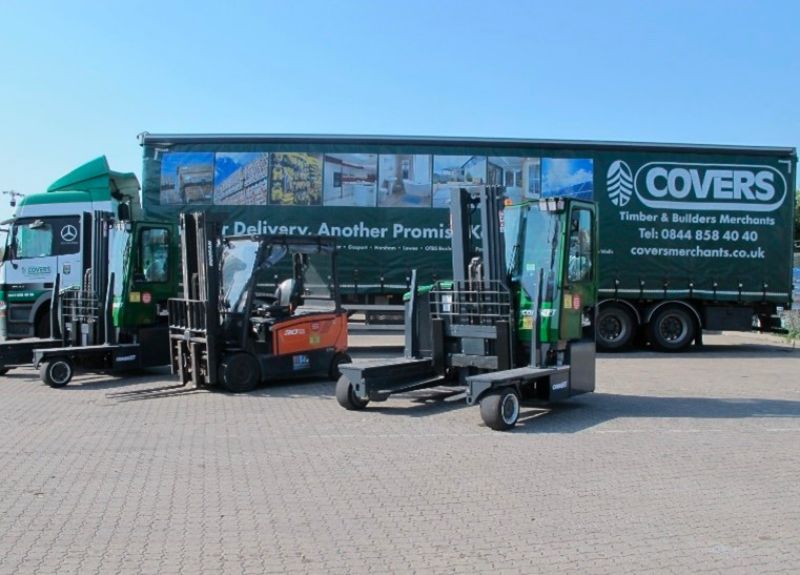
Covers Timber & Builders Merchants has added three brand new electric forklift trucks at its Chichester depot, further supporting the company’s ambitions of reducing its carbon footprint and reaching net-zero for carbon emissions.
The builders merchant is committed to increasing its fleet of electric machinery and road vehicles. The new electric forklifts at Chichester are in addition to the seven already being used at the depot.
In 2022, Covers has replaced eight of its diesel fork trucks with electric machines, and 11 more are due to enter service across the group in 2023.
Covers has also been working to reduce the carbon footprint of its road-going fleet by replacing traditional fuelled cars with alternative fuel, fully electric and hybrid vehicles. In the last year, 18 fully electric cars and 16 hybrid vehicles have been added to the fleet, and Covers is committed to replacing the remaining conventional cars in the next few years.
Adam Conrad, Group Transport Manager at Covers, commented:
“We are dedicated to minimising our impact on the environment and are constantly re-evaluating all aspects of our business.
“There have been significant improvements in technology for both plant machinery and road-going vehicles. By taking advantage of these modern electric vehicles, we can cut the emissions released from our depots and reduce our overall carbon footprint. Continually investing in new electric vehicles and forklift trucks across the fleet is one way we are doing this.”
In addition, Covers is changing their bulk bags to eco-friendly alternatives, which are made with a minimum of 30% recycled materials. The bulk bags are used for products such as sand, aggregates and shingle. Rubble sacks have already been switched to 30% recycled content, and brown paper bags have replaced plastic carrier bags in store.
These new electric vehicles and bulk bags are part of a range of sustainable initiatives Covers has implemented to help it reach its net zero goal. These include, installing solar panels to the roofs of the majority of its depots, utilising ultra-low consumption LED lighting, sourcing timber that is certified by the Forest Stewardship Council, and increasing the amount of waste that is reused and recycled (currently this is at 80%).
